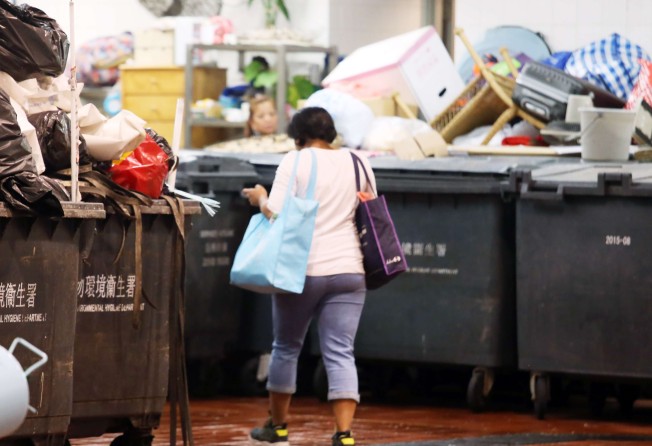The need for a levy on waste disposal is urgent
Amount of rubbish in the city will become unmanageable unless strong action is taken to change people’s behaviour

Most people throw away rubbish without thinking twice. As soon as the waste is out of the door, it becomes someone else’s business. But the truth is that tens of thousands of tonnes of waste are being disposed of at a heavy cost to society every day.
The need for a levy on waste disposal to induce behavioural changes is evident. It is estimated that a family of three would have to shell out about HK$33 to HK$51 a month when waste charging kicks off in the second half of 2019 at the earliest. Commercial and industrial premises using private refuse collection services are likely to pay up to HK$395 per tonne.
No sooner had the details been announced than a wealth of issues arose. This is understandable, given the resistance in some quarters and the logistics involved. There are some 2.5 million households in 41,000 residential blocks across the city, many of which are not managed by property management companies or owners’ corporations. That makes enforcement a challenge.
Theoretically, compliance should not be an issue for a law-abiding city like Hong Kong. The levy, after all, is for the public good. But there are always those who do not buy the polluter-pays principle. Environment chief Wong Kam-sing conceded that enforcement would be difficult. But as he said, the annual cost for an average household would be just a few hundred dollars, which is considerably lower than the proposed fine of HK$1,500 for those not using the prepaid disposal bags approved by the government.
While enforcement is essential, education is no less important. As with other ordinances that are meant to induce behavioural changes, it pays to promote the benefits of the levy rather than harping on about punishment. Take the plastic bag levy as an example. The “bring your own bag” message has sunk in without large numbers of prosecutions. Instead of deploying manpower across the city to monitor compliance, it would be wise to promote responsible waste disposal at the household and business level.
Also worthy of more consideration are subsidies and exemptions for people in financial need. While it is true that the levy may add to the burden of some cash-strapped families, reducing waste is everyone’s duty. The purpose of a levy would be defeated if a large portion of the population were exempt from any measures promoting responsible waste disposal. Our solid municipal waste volume has jumped 84 per cent over the past three decades, outstripping our population growth of 34 per cent during the period.
Whether the target of cutting 40 per cent of rubbish by 2022 can be achieved remains unclear at this stage. But unless the levy is introduced expeditiously, our waste will become unmanageable.